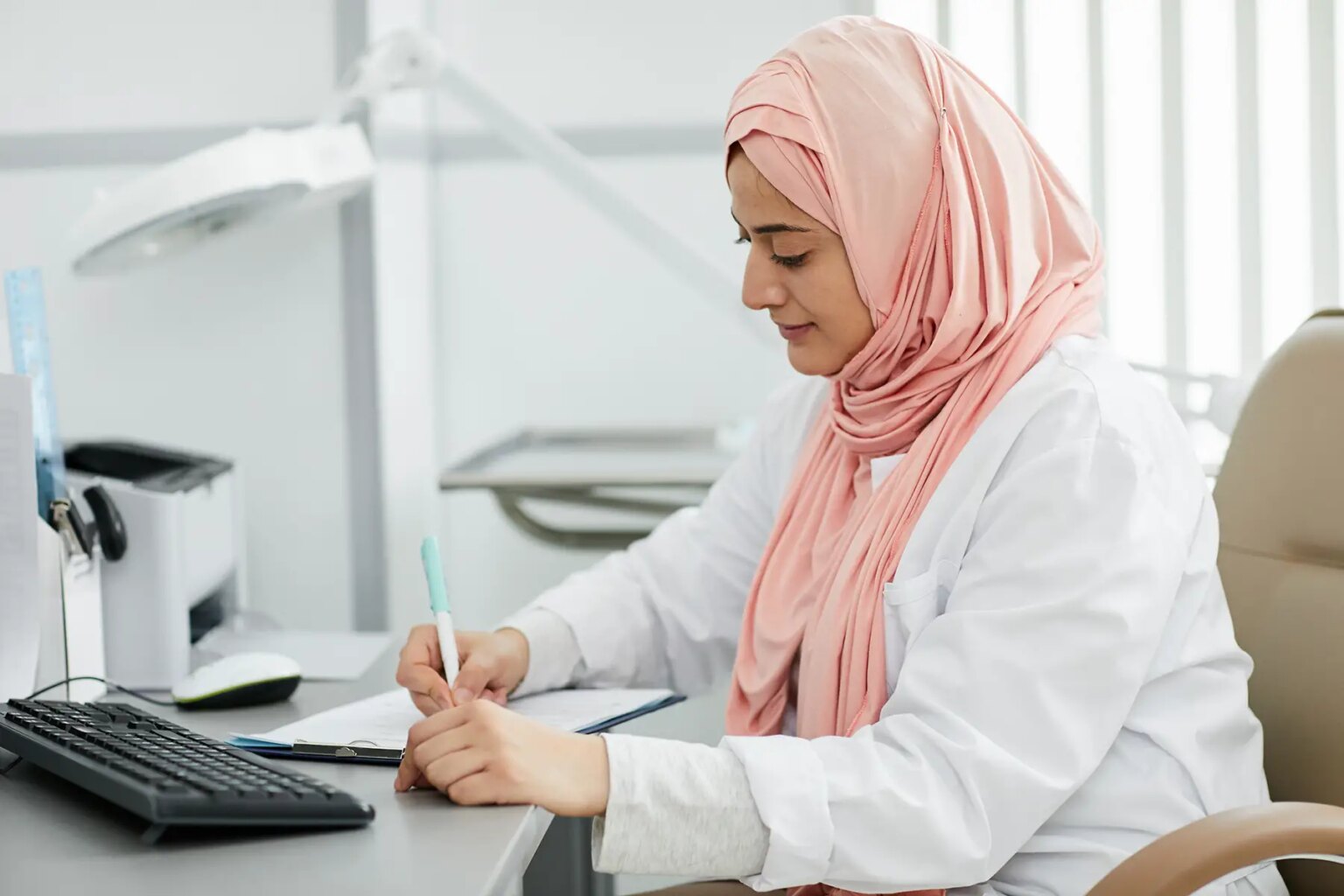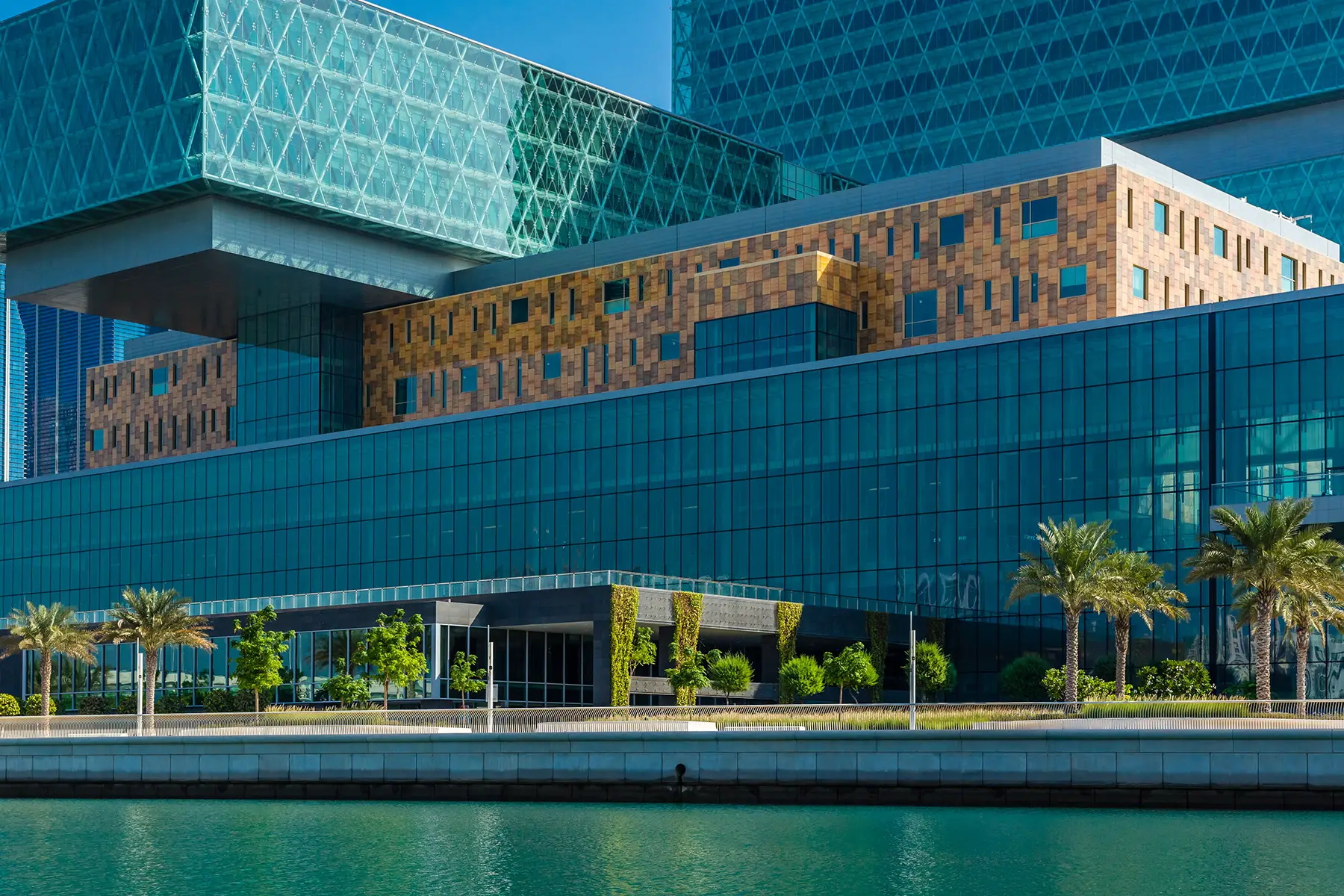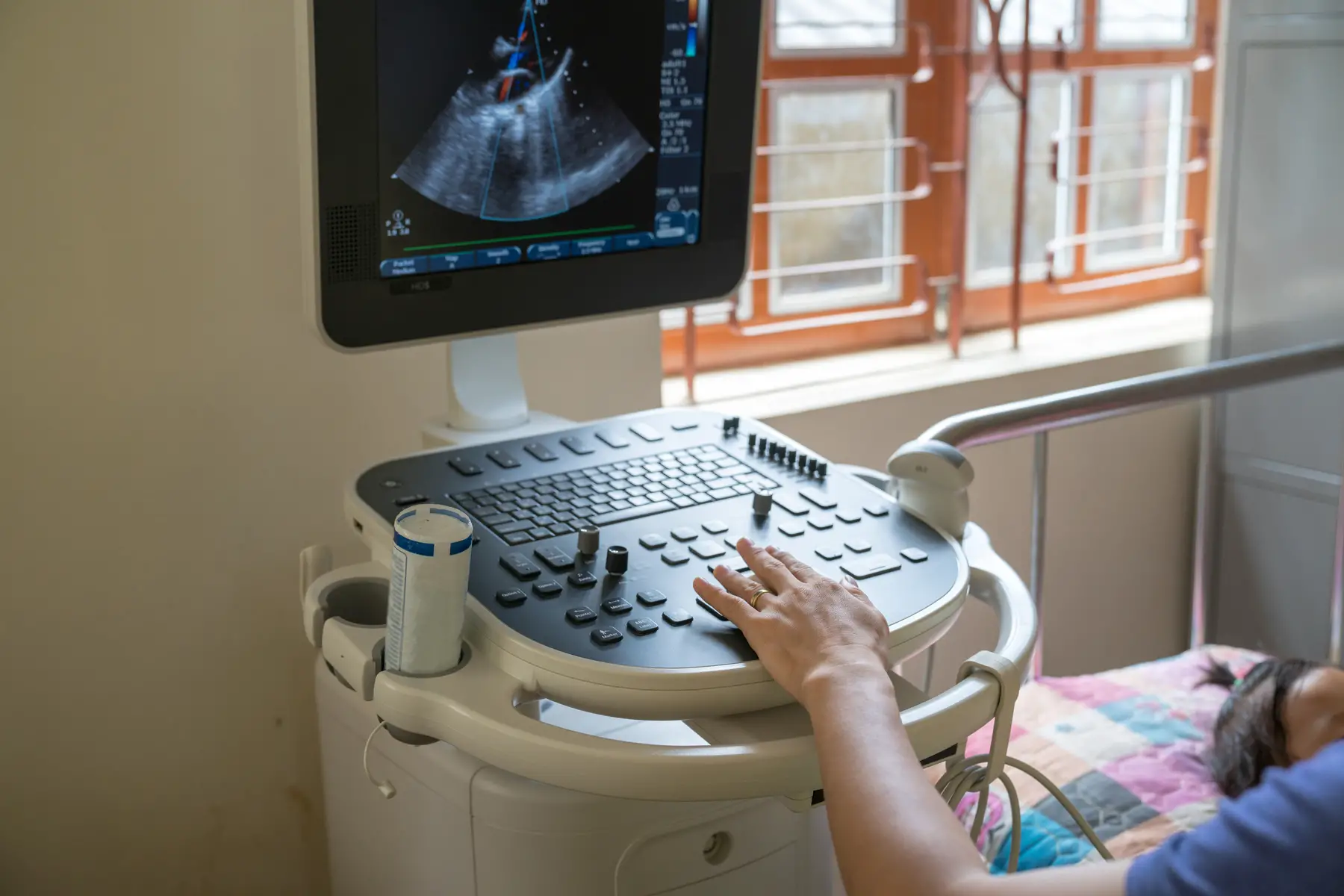Finding a good doctor while living abroad is naturally a top priority for many expats. And fortunately, doctors in the UAE are highly trained and some of the best in the region. To get you started, this article reviews the ins and outs of finding a doctor, getting prescriptions filled, and even making a complaint.
It includes the following information:
- Doctors in the UAE
- Who can access doctors in the UAE?
- Finding a doctor in the UAE
- Registering with a doctor
- Making an appointment with a doctor
- Medical specialists in the UAE
- Cost of doctors and specialists
- Health insurance in the UAE
- Private doctors and specialists in the UAE
- Doctor prescriptions in the UAE
- Medical tests in the UAE
- Emergency doctors in the UAE
- Making a complaint about doctors or specialists
- Useful Emirati medical phrases
- Useful resources
APRIL International
Looking for expat-friendly health insurance in the UAE? APRIL International has a long history of providing health coverage tailored to the unique needs of the expat lifestyle, ensuring peace of mind for you and your family. Whether you’re relocating to the UAE or simply staying short-term, APRIL International has the right policy for you.
Doctors in the UAE
The UAE has a mixed public and private healthcare system, and UAE nationals are able to access free public healthcare. Most expats, on the other hand, will have private health insurance. In fact, if you live in Abu Dhabi or Dubai, your employer is required to provide this.
For most people, their primary care, or family doctor, will be the medical professional they see most often, and they may work out of clinics, offices, or even as part of hospitals. They will manage your minor illnesses, vaccines, and preventative care. When it is necessary, primary care doctors also make referrals to specialists.
In 2017, the UAE had 8,322 public-sector physicians and 48,220 private-sector nurses and physicians. Working hours for public-sector doctors are usually from 07:00 to 15:00, Sunday to Thursday, while private-sector doctor hours will vary based on the clinic.
Who can access doctors in the UAE?
Both expats and non-residents can access doctors in the UAE. However, if you don’t have insurance, you may be required to pay some or all of the costs upfront. The requirements for accessing a specific doctor will depend on each doctor. You can contact their office directly or ask your primary care provider for a referral if the office requires one. But if you don’t have a primary care provider, you can contact the office directly to ask how you can go about securing a referral.
Finding a doctor in the UAE
There are several ways to find a doctor in the UAE. The first is to understand your in-network options through your insurance plan. This will limit the scope of your search by showing you who the most cost-effective doctors are for you to see. Another option is to seek recommendations from friends and family or search online. Below are a few suggestions of how to find a doctor, depending on your emirate.
Dubai
If you live in Dubai, you can search for doctors on the Dubai Health Authority App or search within Dubai Healthcare City. You can also search through the Dubai Medical Registry.
Abu Dhabi
Abu Dhabi residents can search for a doctor through SEHA Abu Dhabi Health Services or through Tamm.
Other emirates
If you live in Ajman, Fujeirah, Ras al Khaimah, Sharjah, or Umm al Quwain, be sure to ask around in your expat circles. But if that doesn’t work, you can try this convenient site where you can search for a doctor by city.
Medical licensing
Because the UAE is a federation of seven emirates, different cities have different medical licensing bodies. For instance, in Dubai, healthcare professionals are licensed by the Dubai Health Authority. However, medical professionals in all other emirates are licensed through the Department of Health Abu Dhabi.
Finding English-speaking doctors in the UAE
Unfortunately, there are no official statistics regarding the number of English-speaking doctors practicing in the UAE. However, because most expats have private health insurance, many private doctors speak English as well as other languages. That said, it’s always a good idea to ask what languages are spoken at the clinic when compiling your list of preferred doctors. You can also use this helpful online tool to search for English-speaking doctors in your area.
Registering with a doctor
Some insurance policies require you to register with one family doctor or practice. However, even if yours doesn’t, it’s a good idea to register with one you like as they can centralize all your medical records for as long as you are living in the UAE. Moreover, when facing a medical challenge, it’s a relief to work with someone you trust and have known for a while.
Conveniently, many clinics may be able to see all members of the family, big and small, so you might want to consider registering your entire family at one practice. The registration process will look different depending on the office, but you will likely need to provide your health insurance card, ID, vaccination records, and any pertinent medical records.
Making an appointment with a doctor
The process for making an appointment with a doctor will vary depending on the clinic you register with. Many larger clinics accept online appointments, with some, like HealthHub, prioritizing telehealth (video consultation) appointments. However, generally, you will need to call a clinic to schedule an appointment with a doctor.
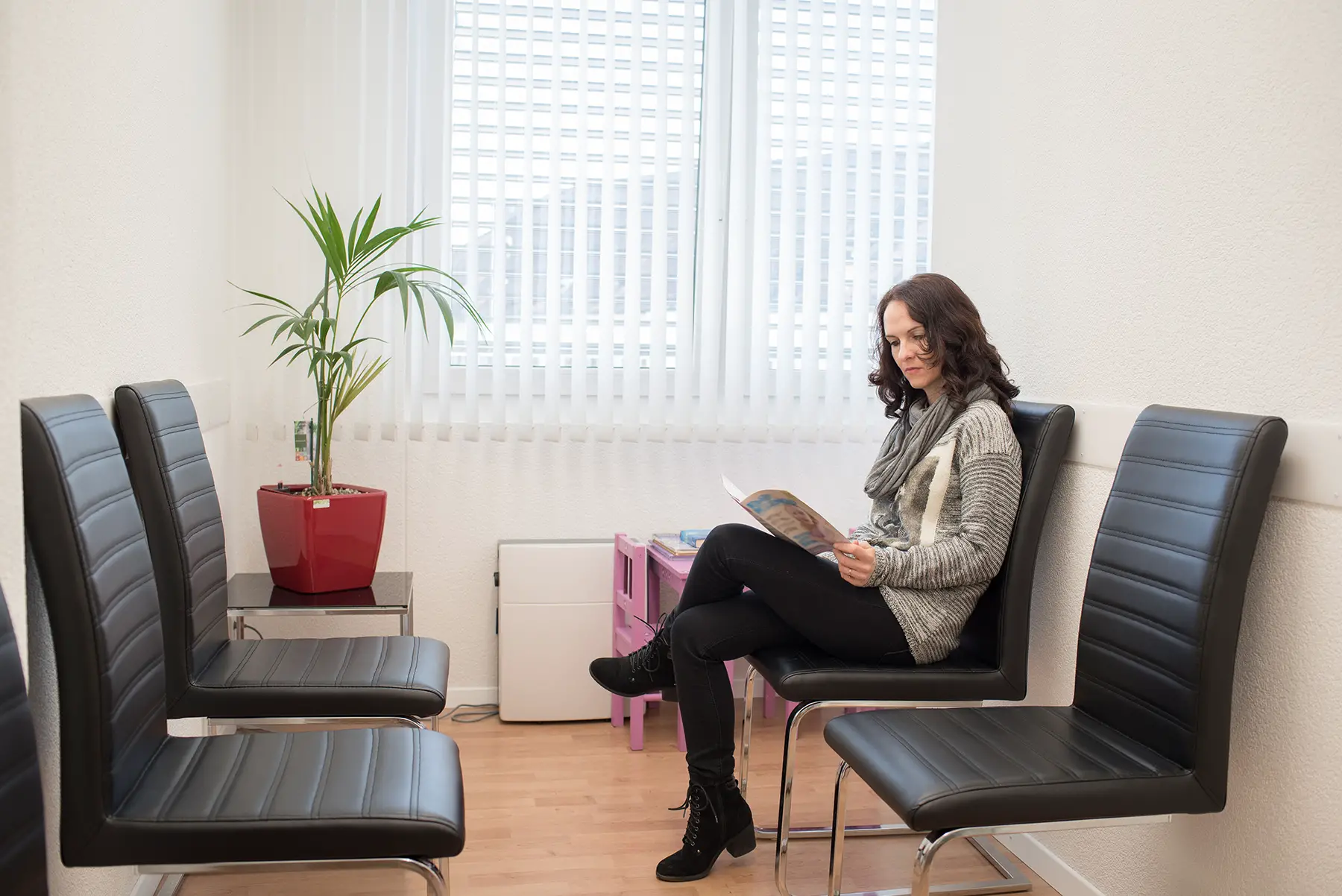
Furthermore, walk-in appointments, especially for new clients, can be rare. Also, keep in mind that some clinics prioritize future appointments for current clients. As a result, some of the more popular clinics may have periods where they are not accepting new patients, or where waiting times are longer.
What to expect when visiting a doctor in the UAE
Similar to many countries in the world, the COVID-19 pandemic has affected how doctors’ visits take place in the UAE, with many clinics turning to telehealth options. However, with the pandemic slowly winding down, many clinics are expanding their telehealth options. Many clinics are also providing in-home doctor visits, but just keep in mind that some private clinics may or may not accept insurance.
When visiting a doctor in person, be sure that you bring your health insurance card, your Emirates ID, and a form of payment. You will need to check in when you arrive and let them know you are there. Waiting times will vary based on how busy the clinic is, but you can always ask the front desk how long you are likely to be waiting.
The doctor’s bedside manner and how they conduct the appointment will also depend on the doctor. Remember to keep in mind that culture may also play a role; for example, some Arab male doctors consider it impolite to look directly in a woman’s eyes, even when treating her.
Medical specialists in the UAE
The UAE is home to some very reputable hospitals, including local branches of western hospitals like the Cleveland Clinic and King’s College Hospital. As such, you will find doctors who practice in any specialty you might need, from oncology to cardiology to neurology. Many specialists are linked to hospitals, but some work out of outpatient clinics.
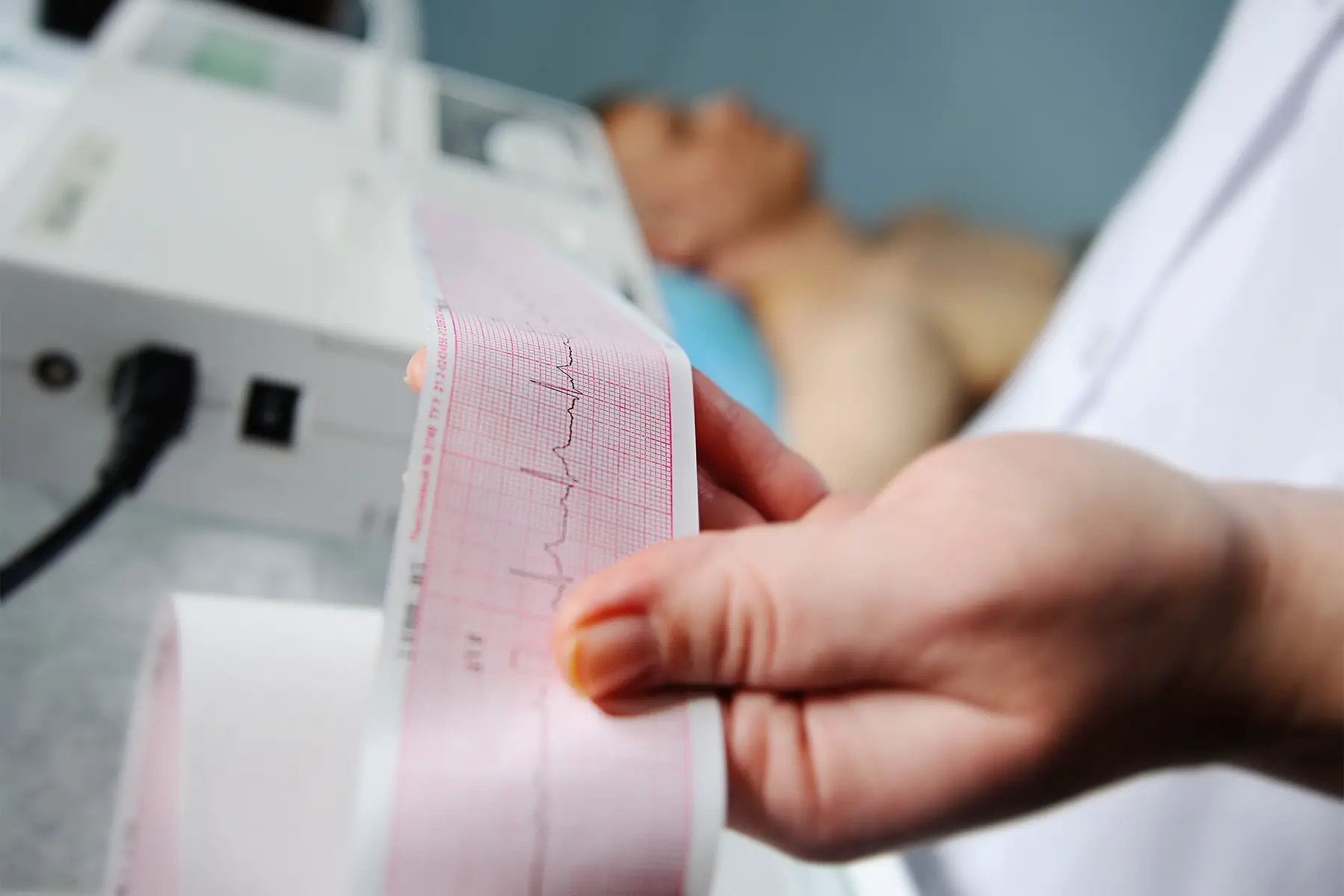
The process for getting a referral to see a specialist in the UAE will depend on your insurance. Some insurance policies may allow you to self-refer to a specialist, while others might require you to seek a referral from your family doctor first. Therefore, be sure to read the fine print so you understand your rights. Also, keep in mind that waiting times will vary, depending on how busy the specialist is and whether they are accepting new patients.
Finding a specialist in the UAE
The best way to find any kind of doctor is to ask trusted friends and family for recommendations. You can also consider asking your family doctor who they would suggest. This, combined with your own research, should give you plenty of options. The good news is that you won’t struggle to find English-speaking specialists in the UAE as most health professionals are foreign-trained. You can try using a site such as SEHA to compare doctors. If you would like to see comparisons with patient reviews, you can also try DrFive or ArabiaMD.
Visiting a specialist in the UAE
The process for visiting a specialist in the UAE will depend on the clinic. Some more in-demand clinics may issue you an appointment, but if they have many openings, then you might be able to choose your preferred date. To make an appointment, you will need to call the clinic directly and they will advise you on what to bring and what to expect. However, generally speaking, you will need your ID, health insurance card, and a form of payment. You should also ask if they need you to bring your medical records, or if your referring doctor can send them over.
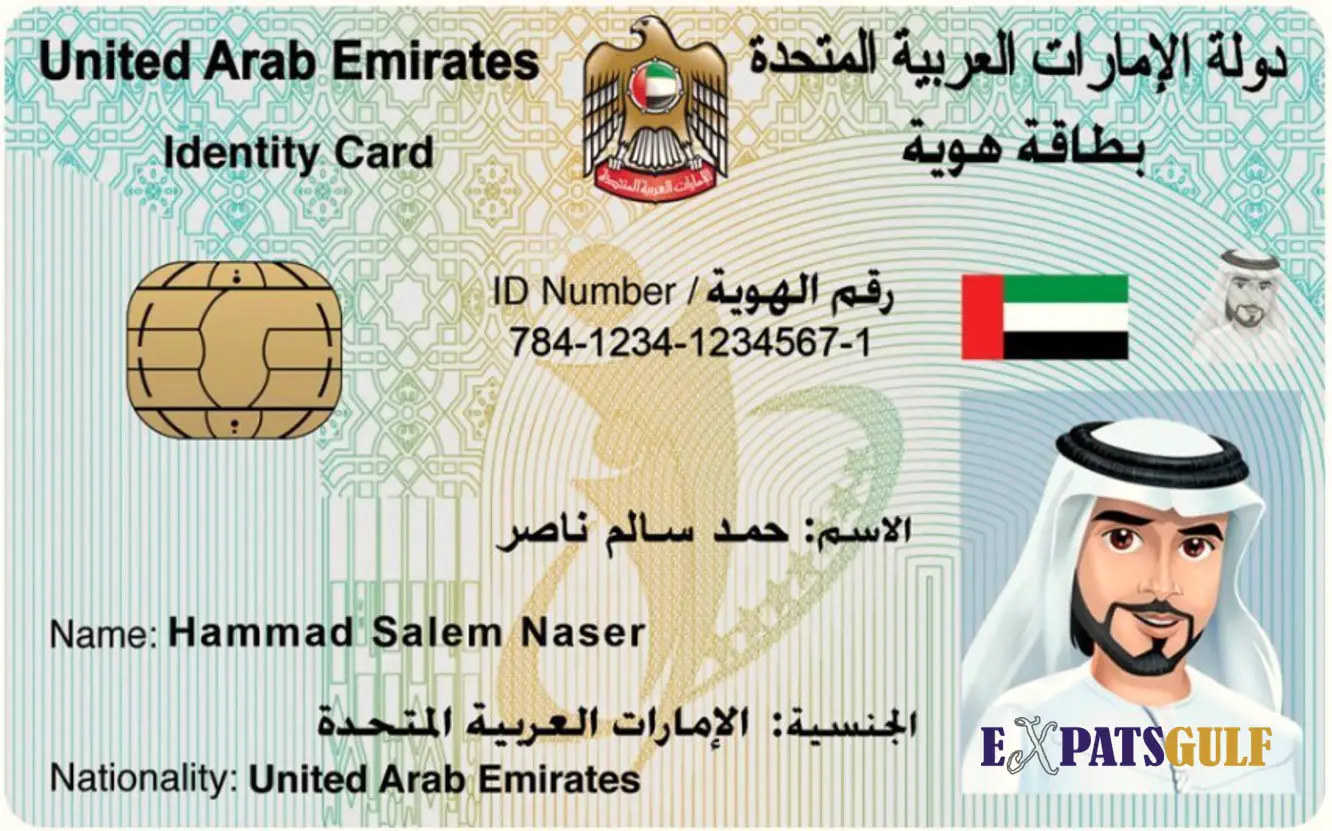
Some clinics also offer telehealth options so if that is something you are interested in, be sure to ask. Note that waiting times vary, and can even be up to 41 days at some hospitals. That said, the UAE is prioritizing lowering these.
Cost of doctors and specialists
Because the UAE is home to people with very low incomes as well as some extremely wealthy individuals, the cost of visiting a doctor can vary significantly. Treatment costs will also vary based on how much your insurance covers. Therefore, be sure to check with your insurance provider to see if your policy pays directly or whether you have to pay upfront and get reimbursed later.
Here are some general prices ranges to give you an idea:
- Annual check-ups – basic check-ups with blood tests and chronic illness screenings can start around AED 1,500. For more complex screenings that bring in cardiologists and ophthalmologists and other specialists, you are likely to pay closer to AED 6,500.
- Dermatologist – dermatology consultations can range from AED 250 to AED 1,000
- Cardiologist – cardiology consultations can range from AED 300 to AED 1,500
- Orthopedist – orthopedic consultations can range from AED 400 to AED 1,000
Common treatments:
- Hip replacement – can range from AED 60,000 to AED 90,000
- Giving birth – can range from AED 7,000 to AED 30,000
- In-Vitro Fertilization – can range from AED 12,000 to AED 20,000
- Spinal fusion – can range from AED 65,000 to AED 80,000
Health insurance in the UAE
The UAE has a mixed health insurance system, and Emiratis are eligible for free public healthcare. However, expats tend to have private insurance, which is often provided by their employers. In fact, in Abu Dhabi and Dubai, employers must provide private health insurance for their employees.
Details of private health insurance – such as what costs you are responsible for, as well as what kinds of specialist treatment you can access – will depend on your individual insurance policy. Often, certain preventative visits, such as annual check-ups, may be fully covered, while specialist referrals may have higher co-payments. So be sure to speak with your employer and read the fine print to ensure that you fully understand your entitlements.
Fortunately, there are several large international insurance providers that cater to expats living in the UAE. These include:
Private doctors and specialists in the UAE
The UAE’s private healthcare system is far bigger than its public one and the vast majority of expats in the UAE use it. Private clinics provide all sorts of healthcare services, from orthopedics to cardiology to plastic surgery. In 2021, the UAE’s healthcare system ranked 20th globally in the World Index of Healthcare Innovation. And thanks to the country’s thriving private healthcare system and location, medical tourism is growing in the Emirates, with cancer treatment being the most popular.
To find a doctor or specialist, it is best to ask around in your expat circles for trusted recommendations and to do your research beforehand. Also keep in mind that, depending on how much your insurance covers, private healthcare can be costly. For instance, a consultation could easily start at AED 400 and cost far more with specialists or popular doctors.
Doctor prescriptions in the UAE
Many prescriptions that are available throughout the world are also available in the UAE, although they may require a prescription. Medicines such as paracetamol, ibuprofen, and even some antibiotics are available over the counter, and pharmacies are everywhere, with many operating 24 hours a day.
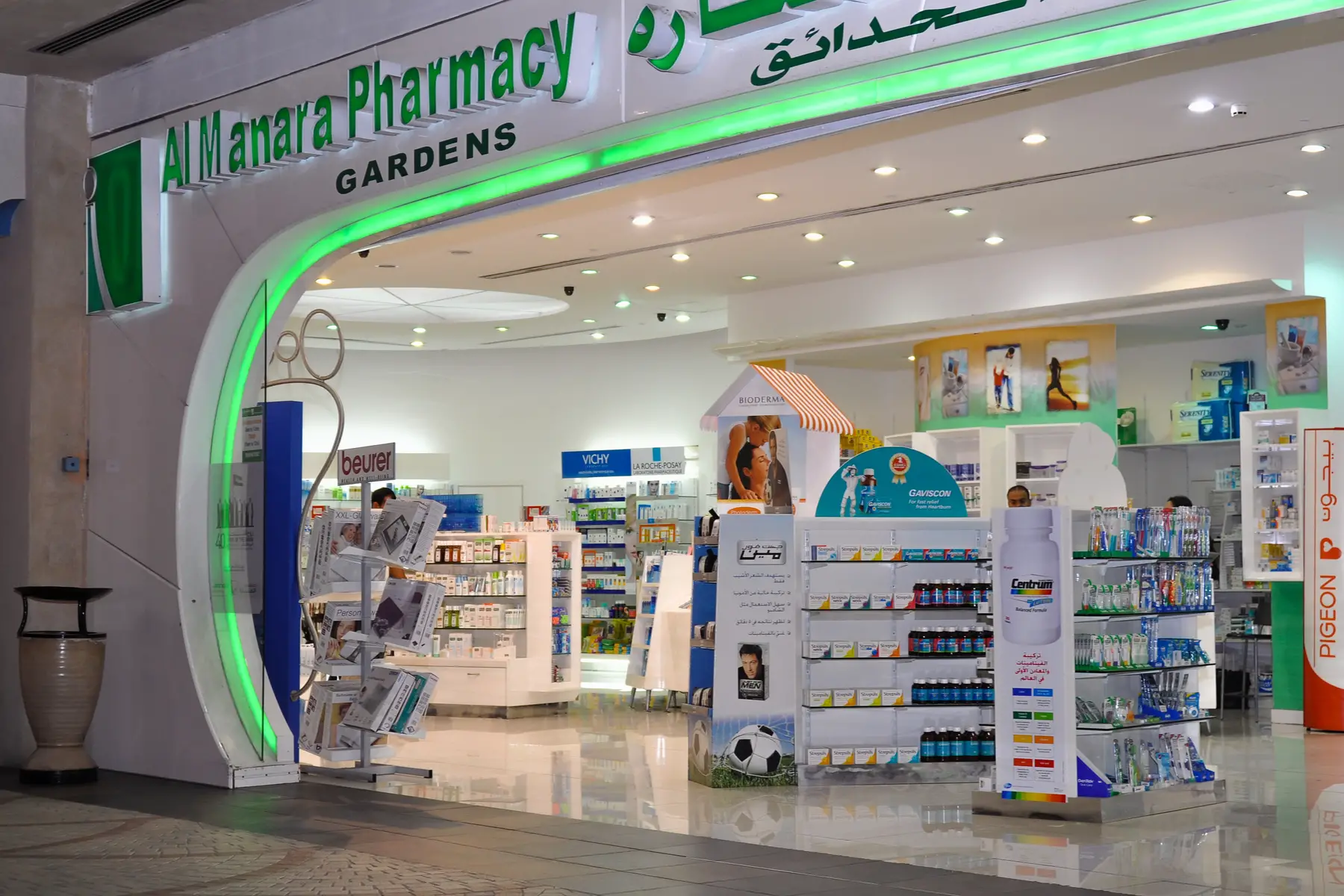
Getting prescriptions written and filled is similar to the process in many other places. You will see your doctor and they will issue or renew your prescription and send it to your pharmacy of choice. However, just keep in mind that most pharmacies will not honor a foreign prescription. Costs will also vary depending on the drug and how much your insurance covers.
While it may be difficult to get prescriptions for controlled and semi-controlled medication, getting other prescriptions in the UAE is not necessarily more difficult than in other countries. That said, if there is a particular medication that you are used to taking in your home country, be sure to note the name and dose of the drug and do your research to see if it is available in the UAE.
Notably, over-the-counter contraceptives were phased out in 2018, so you now need a prescription to access them. Furthermore, in recent years, there have been reports of it being harder for unmarried women to access contraceptives, so it is best to speak with your doctor about this.
Controlled and semi-controlled medication
It is important to be aware that certain drugs, including some narcotics and psychotropics, are not allowed in the UAE, even if you have a prescription. Meanwhile, other controlled and semi-controlled medicines can be brought into the country, provided you have prior Ministry authorization. To apply for authorization, you will need a medical report from the facility that issued your prescription, your prescription, and a copy of your passport. You can apply online and find more information about controlled and semi-controlled medicines on the Ministry website.
Medical tests in the UAE
Annual check-ups are commonplace in the UAE and doctors will often order blood, urine, and stool tests, as well as other recommended routine exams such as mammograms or prostate exams. Depending on the doctor, some exams can be done in the clinic while others will need to be referred to a specialist. However, because of the heavily privatized nature of healthcare for expats in the UAE, it can be quite straightforward to request certain tests and to advocate for your medical needs. Test results are usually provided through your clinic’s online medical portal, although some clinics may call you to let you know.
Emergency doctors in the UAE
With more than 140 hospitals, the UAE has a robust emergency medicine infrastructure that is staffed by highly trained professionals from all over the world. If you are experiencing a medical emergency, do not hesitate to call 998 from anywhere in the UAE. Someone will help you get the support you need, even if it means sending an air ambulance. In emergencies, any treatment you receive to stabilize you is free. However, for treatment beyond stabilization, you will need to use insurance or pay the costs.
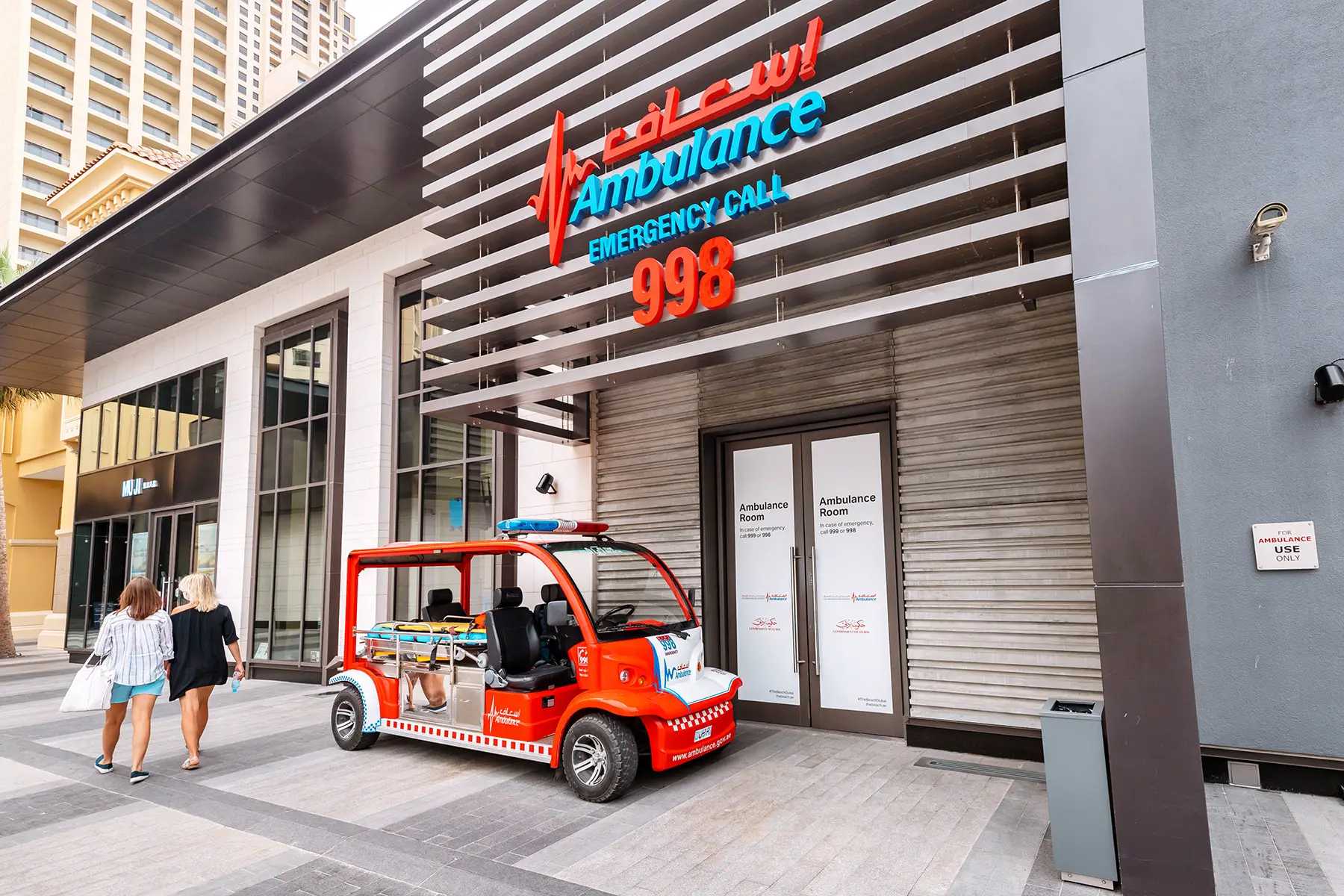
You can read more about this in our article on emergency numbers and services in the UAE.
Making a complaint about doctors or specialists
Unfortunately, sometimes doctors mistreat or cause harm to their patients. If you need to make a complaint about a doctor or specialist in the UAE, the process will depend on the emirate you live in.
If the doctor in question practices in Dubai, you can file a complaint with the Dubai Health Authority. For doctors practicing in Abu Dhabi, you can call 800 555 to register your complaint. If the doctor practices in a different emirate, your best bet would be to go through the Ministry of Health and Prevention. While response times vary depending on the emirate and the severity of the complaint, someone will get back to you with more information about the process and your options.
Useful Emirati medical phrases
The demographics of the UAE are unique because local Emiratis form the minority of the population. As a result, in many circles, you will rarely hear any Arabic at all. However, if you are in an emergency, here are a few handy Arabic medical phrases to use:
- Sa’edooni – help!
- Wain al mustashfaa – where is the hospital?
- Ahtaj tabib – I need a doctor
- Al alam huna – The pain is here
- Tatakallam al engleezi – Do you speak English?
- Ma atakallam al arabi – I do not speak Arabic
- Naam – Yes
- La – No
